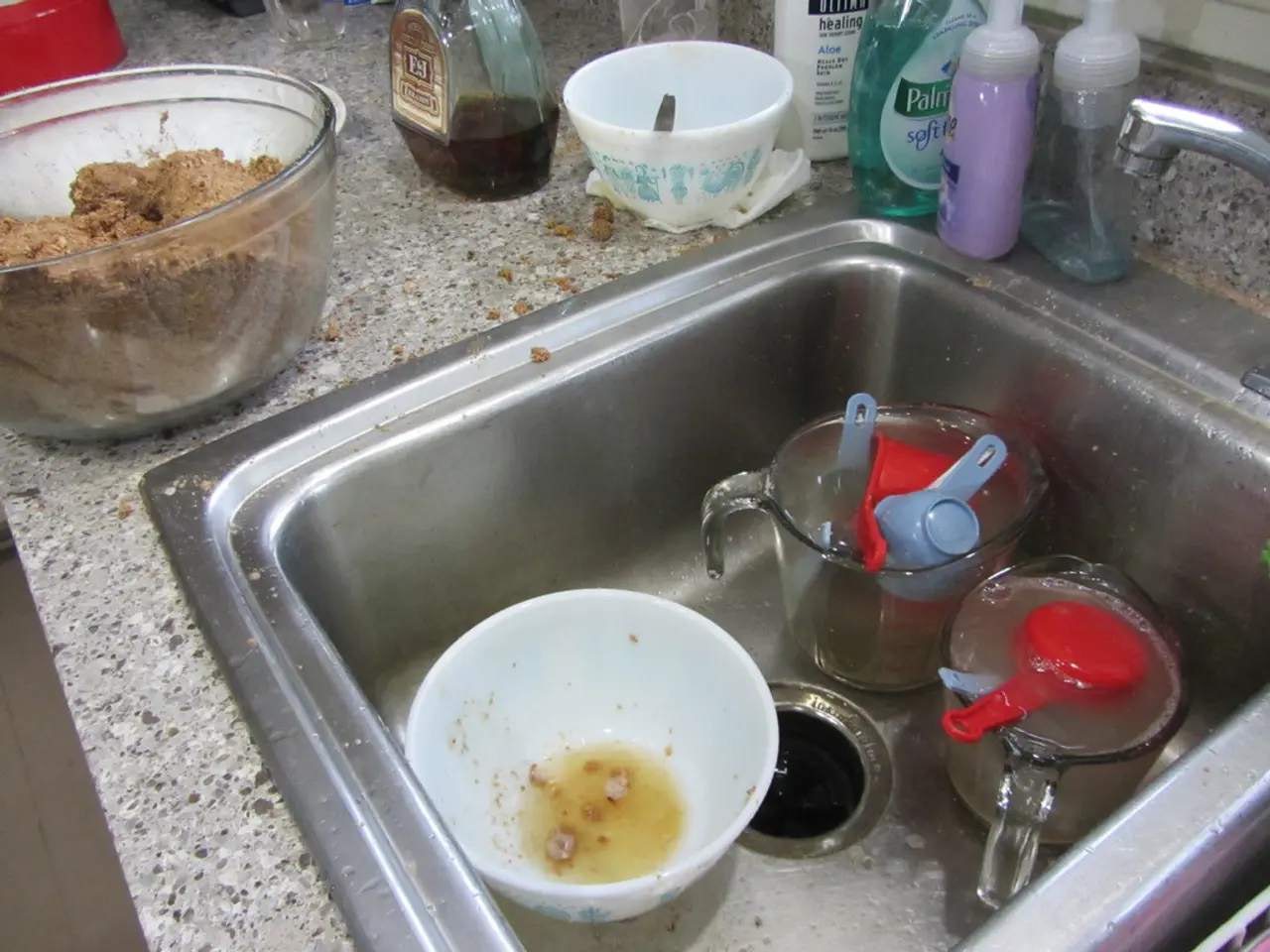Enhancing Gut Microbe Wellness with Prebiotics from Coconuts
In the complex world of gut health, coconut emerges as a surprising ally. This tropical fruit is packed with prebiotics, a type of fibre that serves as a food source for beneficial probiotic microorganisms, promoting a healthy gut microbiome.
Prebiotics, such as fructo-oligosaccharides (FOS) and various dietary fibres, are found primarily in the form of non-digestible fibres in coconut. These prebiotic compounds nourish probiotic bacteria in the intestines, contributing to gut microbiome health by stimulating the proliferation of beneficial bacteria like Lactobacillus and Bifidobacterium species.
FOS, the main prebiotic found in coconut, aids digestion, improves bowel regularity, and may even help reduce cholesterol levels. These prebiotics, resistant to human digestive enzymes, reach the colon intact, where they selectively stimulate beneficial gut bacteria, support gut barrier integrity, modulate immune function, and produce beneficial short-chain fatty acids (SCFAs) through fermentation.
Coconut prebiotics also contribute to dietary fibre intake, which can help with constipation and maintaining healthy blood sugar and lipid levels. Coconut-based products like coconut cream and coconut milk can be fermented with probiotic cultures, turning them into probiotic coconut yogurt, offering enhanced gut health benefits.
Coconut contains approximately 20% carbohydrate, 60% fats, 9% proteins, 8% natural sugars, and 7% moisture. Dried coconut kernel, in particular, contains a significant amount of carbohydrate, with 61% being polysaccharide, 42% of which is mannose and 58% glucose.
The gut, home to trillions of bacteria, plays a crucial role in colon health and human metabolism. Gut bacteria are different types of bacteria that reside in the human gut, numbering over 100 trillion. The major groups of gut bacteria include Firmicutes and Bacteroides.
These gut bacteria maintain colon health, contribute to human metabolism, and produce vitamins such as Vitamin B, K, butyrate, acetic acid, lactic acid, among others. They also break down dietary fibre and starch, fermenting them to produce fatty acids, which they use as fuel.
Coconut prebiotics can help alleviate the detrimental effects of illnesses caused by pathogenic bacteria in the GIT. Coconut water contains indigenous lactic acid bacteria (LAB) with antimicrobial effects against common pathogens like Escherichia coli, Enterococcus faecalis, Staphylococcus aureus, Pseudomonas aeruginosa, and Salmonella typhi.
Moreover, the gut bacteria can have a profound effect on brain development and mood, such as anxiety and depression. Prebiotics, found in a variety of foods like apples, bananas, carrots, vegetables, onions, garlic, potatoes, beans, and of course, coconut, play a significant role in maintaining a balanced gut microbiome, contributing to overall health and wellbeing.
References: 1. [1] Srivastava, A. K., & Kumari, S. (2017). Probiotics: Functional foods for maintaining human health. Journal of Food Science and Technology, 54(6), 2309–2315. 2. [2] Gibson, G. R., & Hutkins, R. W. (2017). Dietary fibre and prebiotics: mechanisms and health benefits. Gut, 66(3), 435–443. 3. [3] Chassard, C., & Gibson, G. R. (2008). Functional foods for gastrointestinal health: prebiotics and probiotics. Nutrition, 24(10), 938–943. 4. [4] Kunze, W., & Kunze, R. (2016). Prebiotics, probiotics, and synbiotics: opportunities and challenges. Nutrients, 8(12), 721. 5. [5] Rastall, R., & Gibson, G. R. (2010). Prebiotics, probiotics, and synbiotics: opportunities and challenges in functional foods and dietary supplements. Nutrients, 2(11), 1231–1246.
- Coconut prebiotics, like fructo-oligosaccharides (FOS), not only improve gut health but also contribute to the proliferation of beneficial bacteria in the intestines, playing a role in mental health as a balanced gut microbiome can have a profound effect on brain development and mood.
- In addition to promoting health and wellness through a healthy gut, prebiotics, found in various foods like apples, bananas, carrots, and coconut, can aid in digestion, improve bowel regularity, and reduce cholesterol levels, demonstrating their importance in fitness and exercise.
- Probiotics, which can be produced through the fermentation of coconut-based products like coconut cream and milk, not only contribute to gut health but also produce short-chain fatty acids (SCFAs) and vitamins like Vitamin B, K, and butyrate, which are essential for overall nutritional needs.




